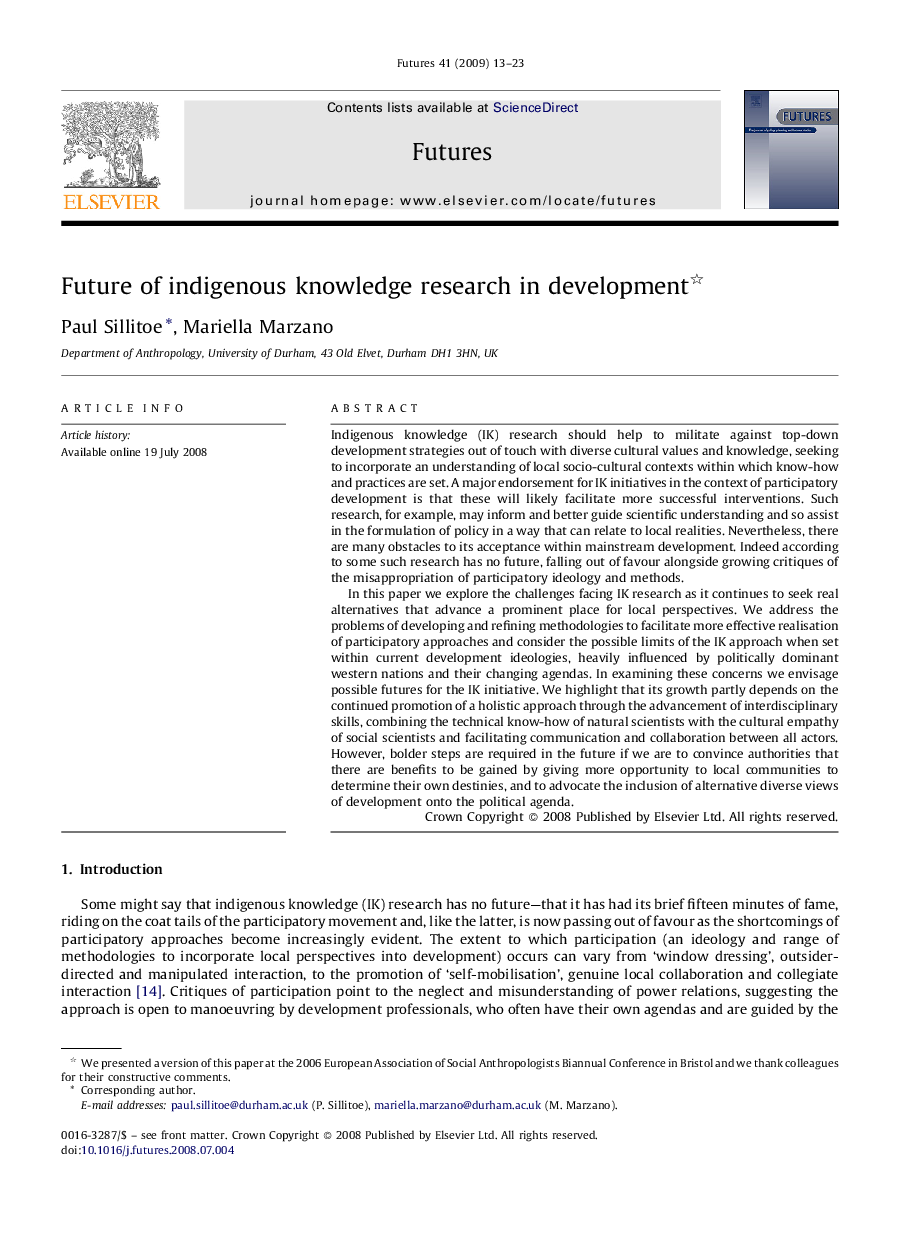| Article ID | Journal | Published Year | Pages | File Type |
|---|---|---|---|---|
| 1016061 | Futures | 2009 | 11 Pages |
Indigenous knowledge (IK) research should help to militate against top-down development strategies out of touch with diverse cultural values and knowledge, seeking to incorporate an understanding of local socio-cultural contexts within which know-how and practices are set. A major endorsement for IK initiatives in the context of participatory development is that these will likely facilitate more successful interventions. Such research, for example, may inform and better guide scientific understanding and so assist in the formulation of policy in a way that can relate to local realities. Nevertheless, there are many obstacles to its acceptance within mainstream development. Indeed according to some such research has no future, falling out of favour alongside growing critiques of the misappropriation of participatory ideology and methods.In this paper we explore the challenges facing IK research as it continues to seek real alternatives that advance a prominent place for local perspectives. We address the problems of developing and refining methodologies to facilitate more effective realisation of participatory approaches and consider the possible limits of the IK approach when set within current development ideologies, heavily influenced by politically dominant western nations and their changing agendas. In examining these concerns we envisage possible futures for the IK initiative. We highlight that its growth partly depends on the continued promotion of a holistic approach through the advancement of interdisciplinary skills, combining the technical know-how of natural scientists with the cultural empathy of social scientists and facilitating communication and collaboration between all actors. However, bolder steps are required in the future if we are to convince authorities that there are benefits to be gained by giving more opportunity to local communities to determine their own destinies, and to advocate the inclusion of alternative diverse views of development onto the political agenda.
